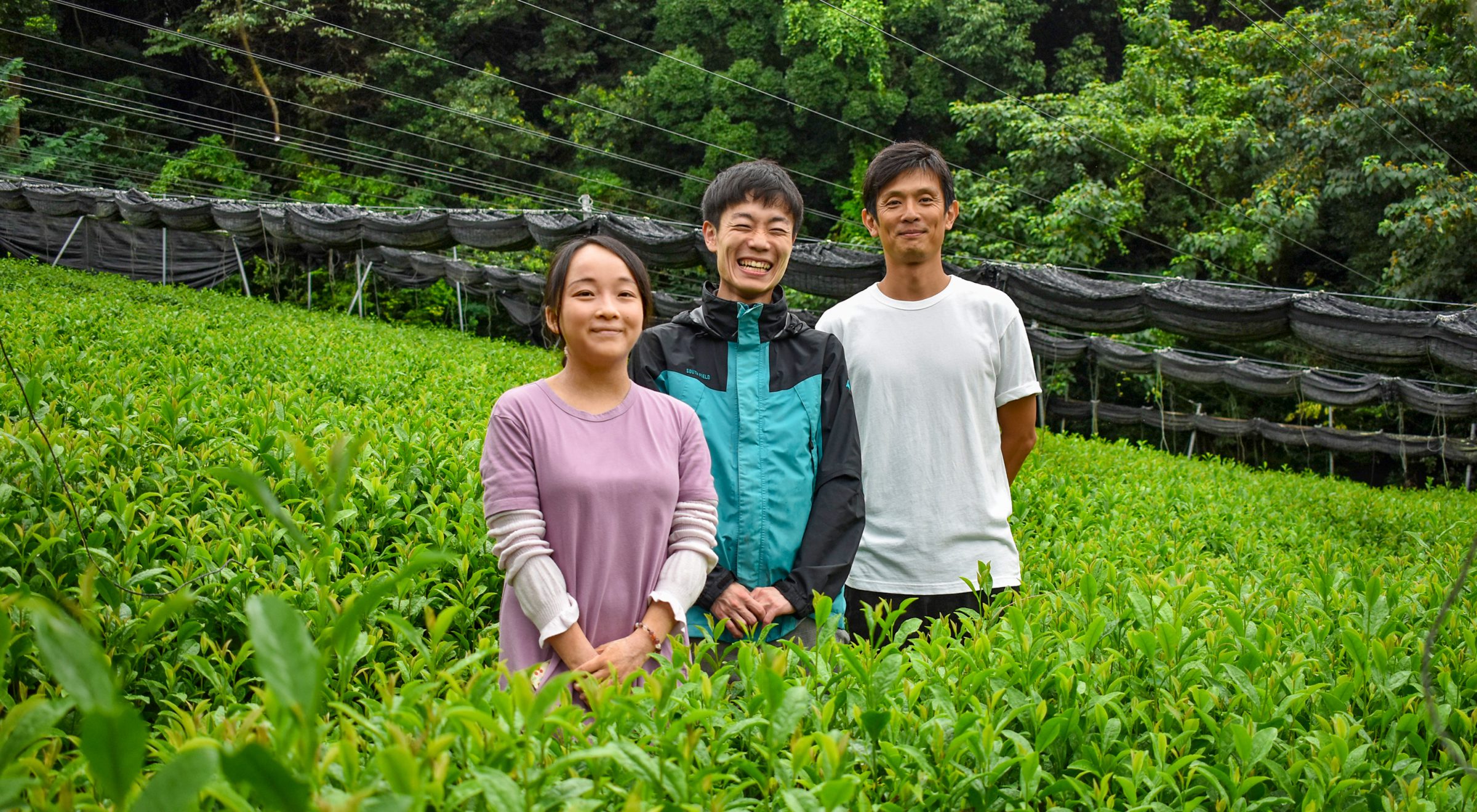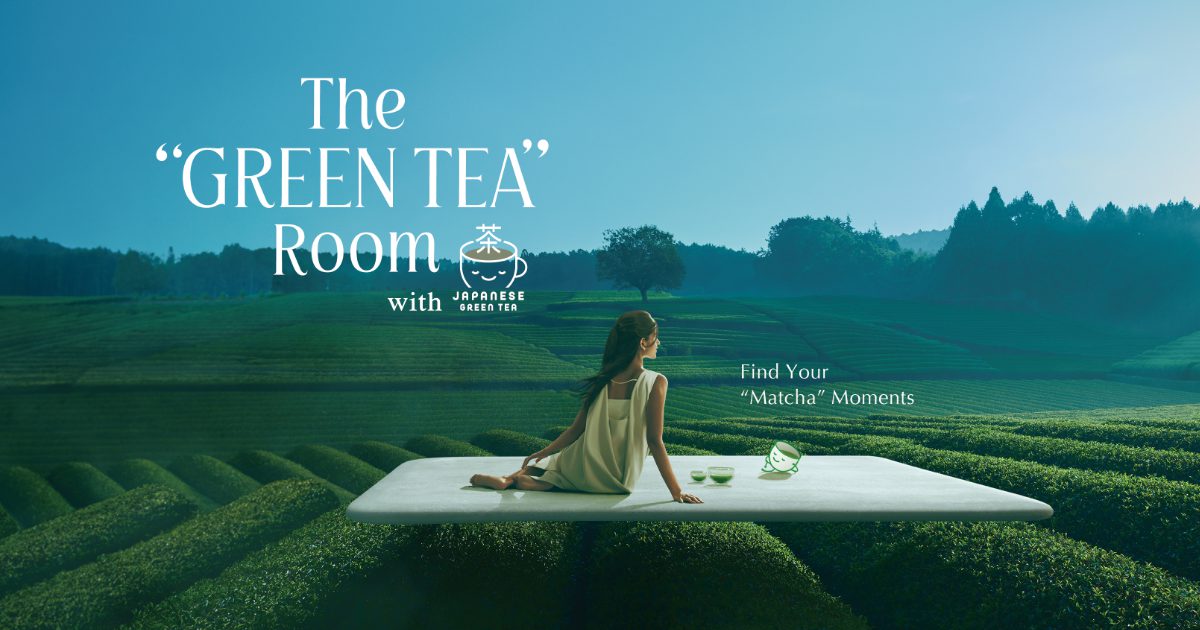Artisanal organic tea for an abundant lifestyle
Yamasan is a pioneer among Japanese tea companies in the development of organic farming and overseas business. We interviewed Teppei Ohata, Managing Director of Yamasan Co., Ltd. of Uji, Kyoto, the birthplace of Japanese green tea, to learn about the tea industry today and what the future holds.
Teppei : Originating around the 13th century (the Kamakura period), there are many theories on the history of Uji tea, which makes it challenging to explain in a few words. Probably the key point is that Uji offers a naturally excellent environment for distinctive tea cultivation. The natural advantages include ideal rainfall, good soil and drainage, and a temperature difference between day and night. Two big rivers, the Uji and the Kizu, also flow through the area, and these factors all help keep the area moderately humid. Based on these natural blessings, traditional tea production techniques have become progressively more sophisticated. Nowadays, the unique cultivation methods developed in Uji have spread all over Japan to places such as Kagoshima and Shizuoka.
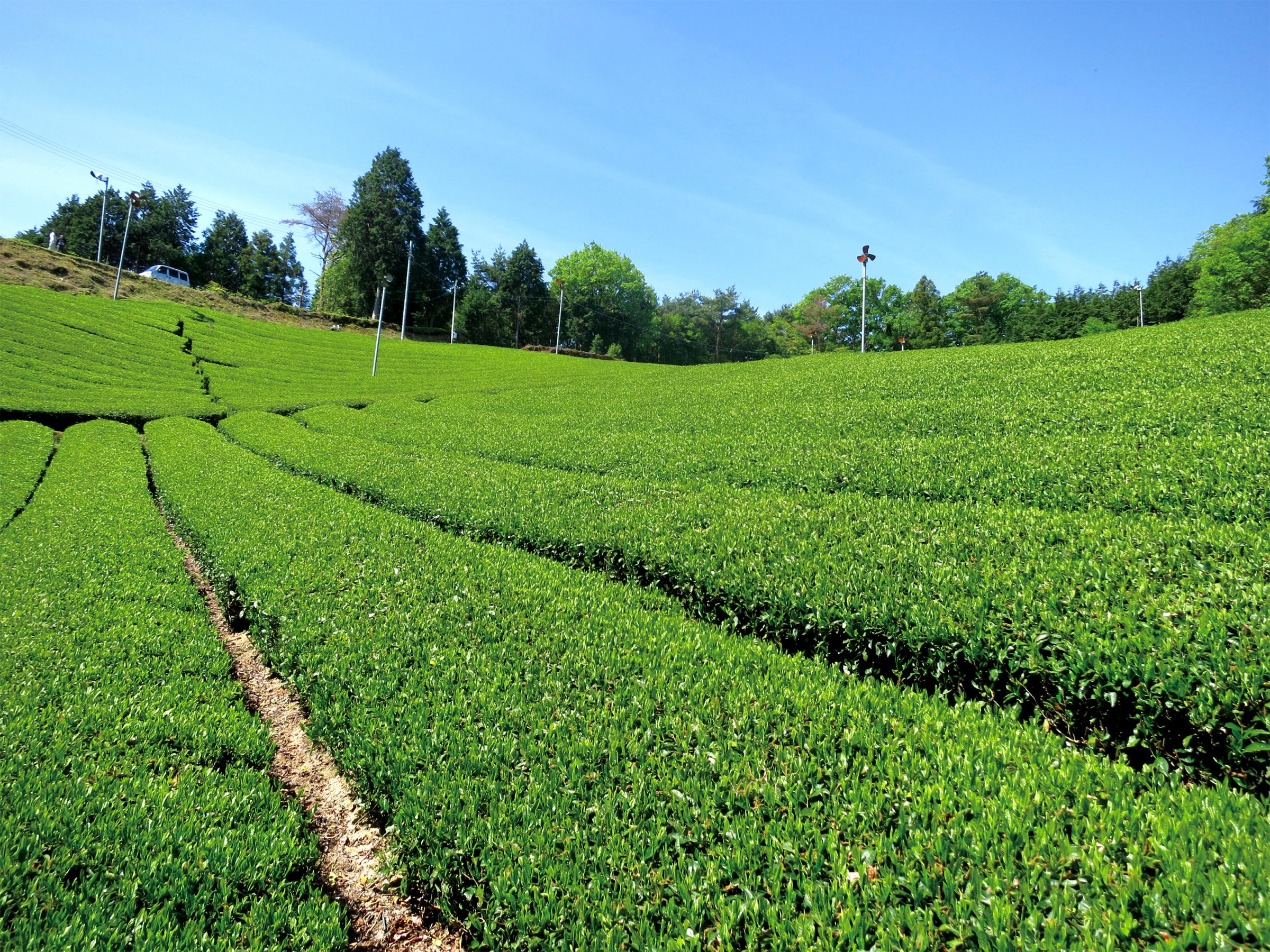
Teppei : Not just in Uji, but in the Japanese tea industry as a whole, the area under cultivation for Japanese green tea is decreasing every year. According to the Ministry of Agriculture, Forestry, and Fisheries (MAFF), the total area under tea cultivation in Japan in 2020 was approximately 39,100 hectares, 7,100 hectares less than the 46,200 hectares in 2011. Uji has a smaller growing area than Kagoshima and Shizuoka, so rather than focusing on production volume, we decided to differentiate ourselves by working hard on techniques to produce the highest quality we could. Fortunately, there’s a relatively high demand for Matcha, and we’ve developed the shade cultivation technique, so we’re working to achieve the best product we can in a small area.
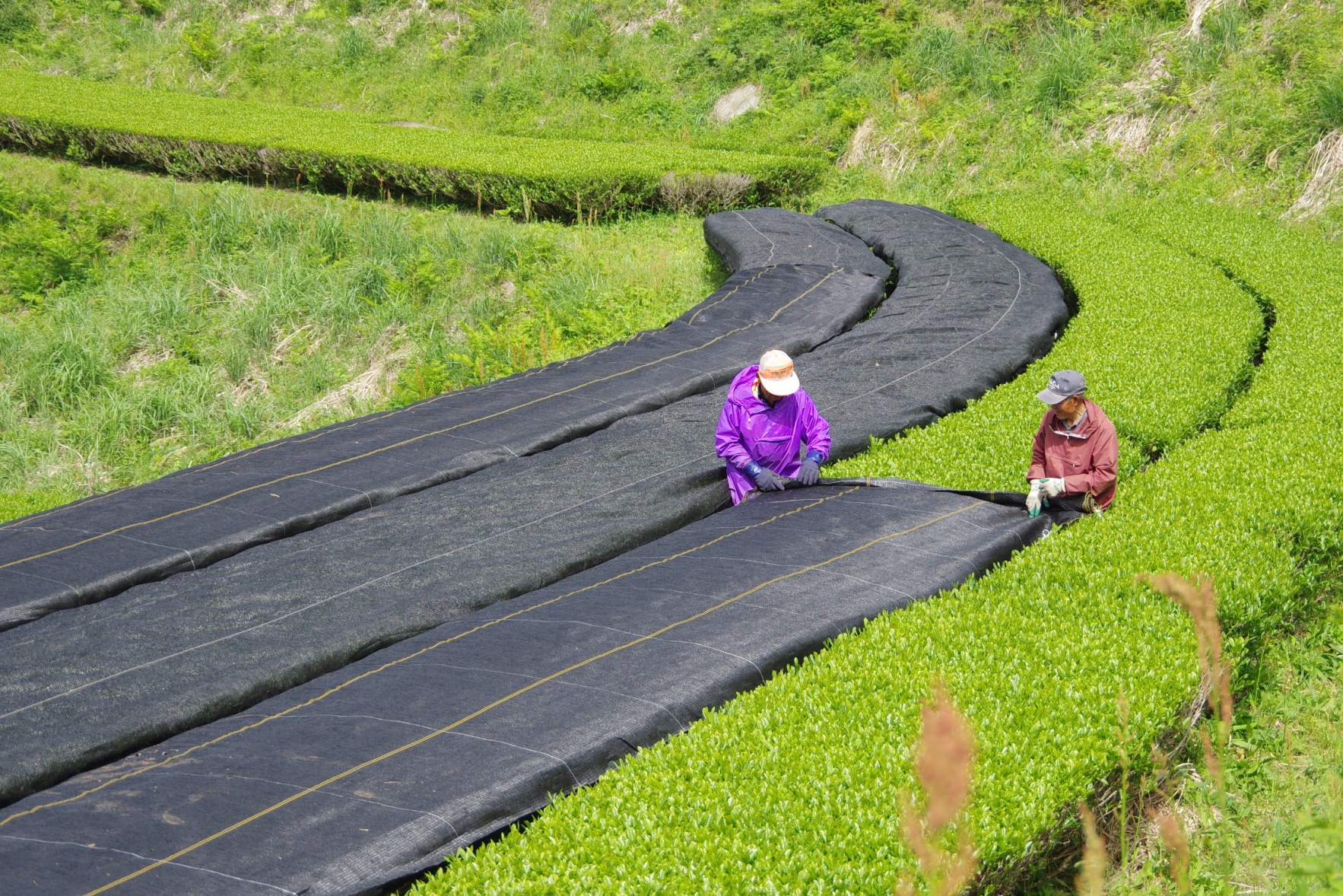
Teppei : We work with about ten farmers at any one time, but each farmer has their own way of maintaining quality during production. Generally speaking, tea is harvested 3-4 times throughout the year, but some of our farmers pick only the first tea in spring, allowing the tea trees to store nutrients across the remaining three seasons. There are also organic tea farmers who ferment their own compost and make their own high-nutrient fertilizer, which results in a delicious organic tea. That said, organic farming does take extra time and effort – farmers have to manage their fields even in the off-season, take care of the weeds, and work very hard to meet the JAS (Japanese Agricultural Standard) organic standards.
Teppei : Young farmers seem to have become aware of this issue, and not a few of them try to switch to organic farming for the future. They will undoubtedly play a key role from now on, and overseas business will definitely be a vital part of that.
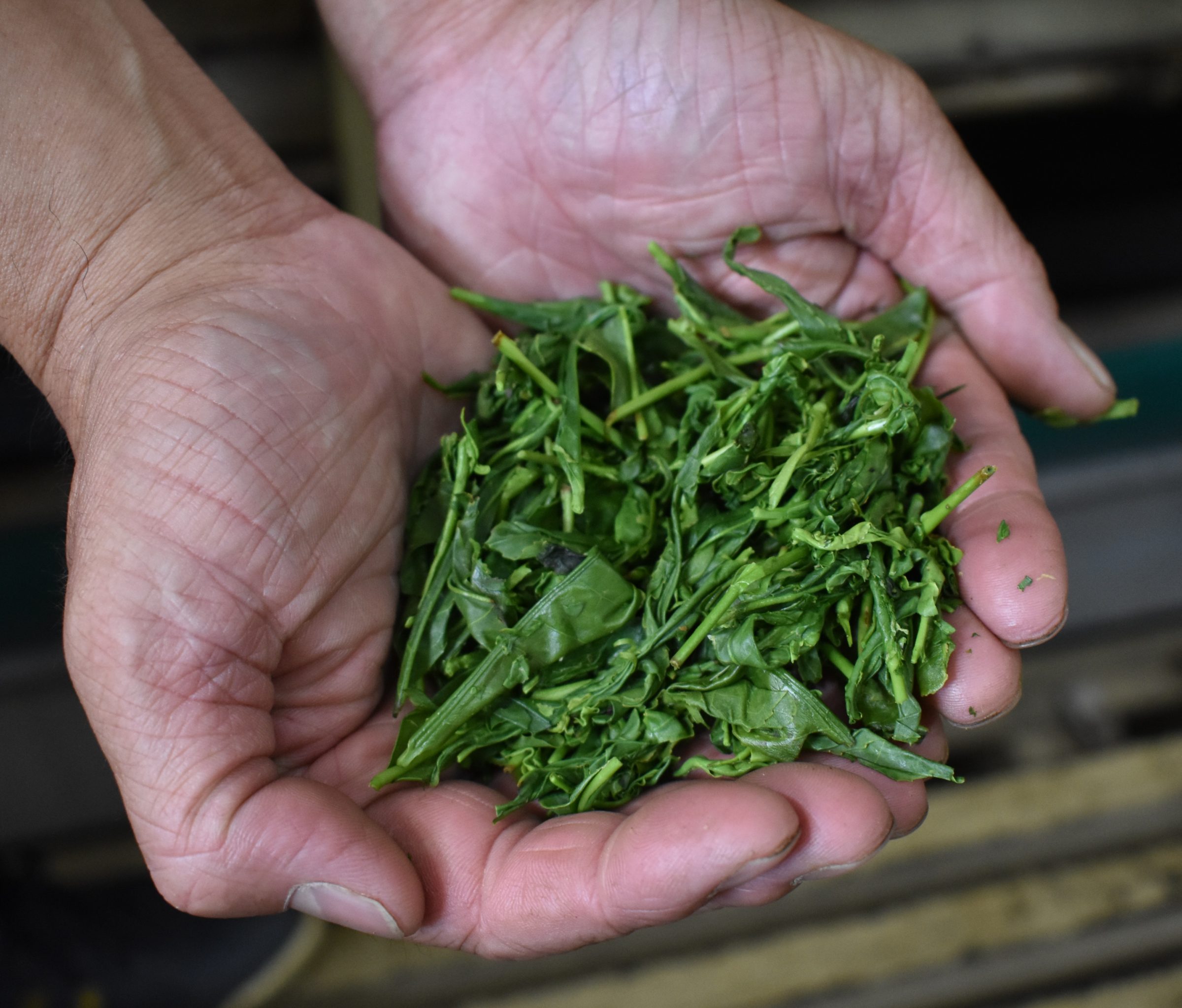
Teppei : Our company's management ethos is the creation of an abundant lifestyle through a tradition of taste. We believe a healthy lifestyle means a healthy mind and body - our job is to help our customers have healthy minds and bodies. We started by working with small suppliers who work very hard to produce their products. One of these was an organic tea grower, which is why many of our products are now organic and domestically produced.
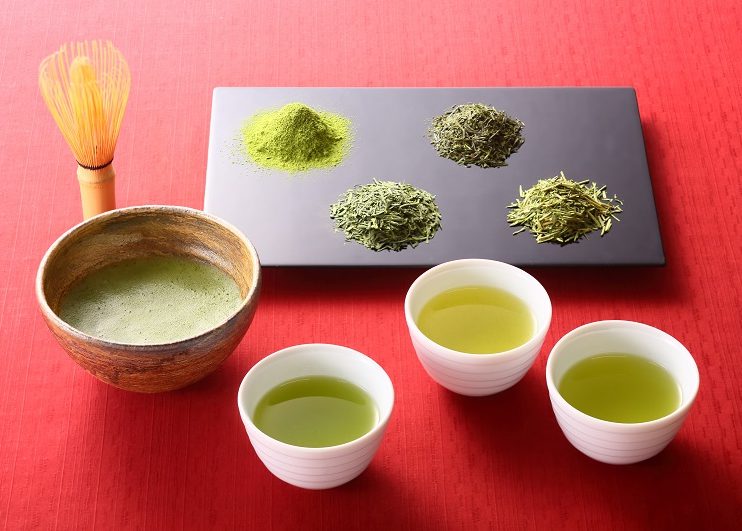
Teppei : We started our overseas business after an email from a customer who had bought some of our organic tea in our shop here. After returning to their home country, they asked us if we could send them some of the same tea, saying they'd been looking for it locally, but no shops there sold organic Japanese tea. I'd never dealt with overseas customers before.
Still, it was an exciting challenge, so I gave it a go, and in October 2014, we set up an overseas business department because we felt that our tea had the potential to expand overseas. When we sell our tea both at home and abroad, we cherish the words of Sen no Rikyu, "One chance in a lifetime" – and keep in mind the concept of hospitality through tea. We want our customers to say they're glad to have found our tea, that when they buy our tea, they'll feel they found just the right tea.
*Sen no Rikyu was a late 16th century Japanese tea master who perfected Wabicha, a style of tea ceremony which became the origin of the modern tea ceremony. He coined the tea ceremony words of wisdom, "One chance in a lifetime" (Ichigo ichie) – referring to something you meet only once, a moment that can happen only once in a lifetime. Since each tea ceremony is such a once-in-a-lifetime event, the whole heart is poured into it for you.
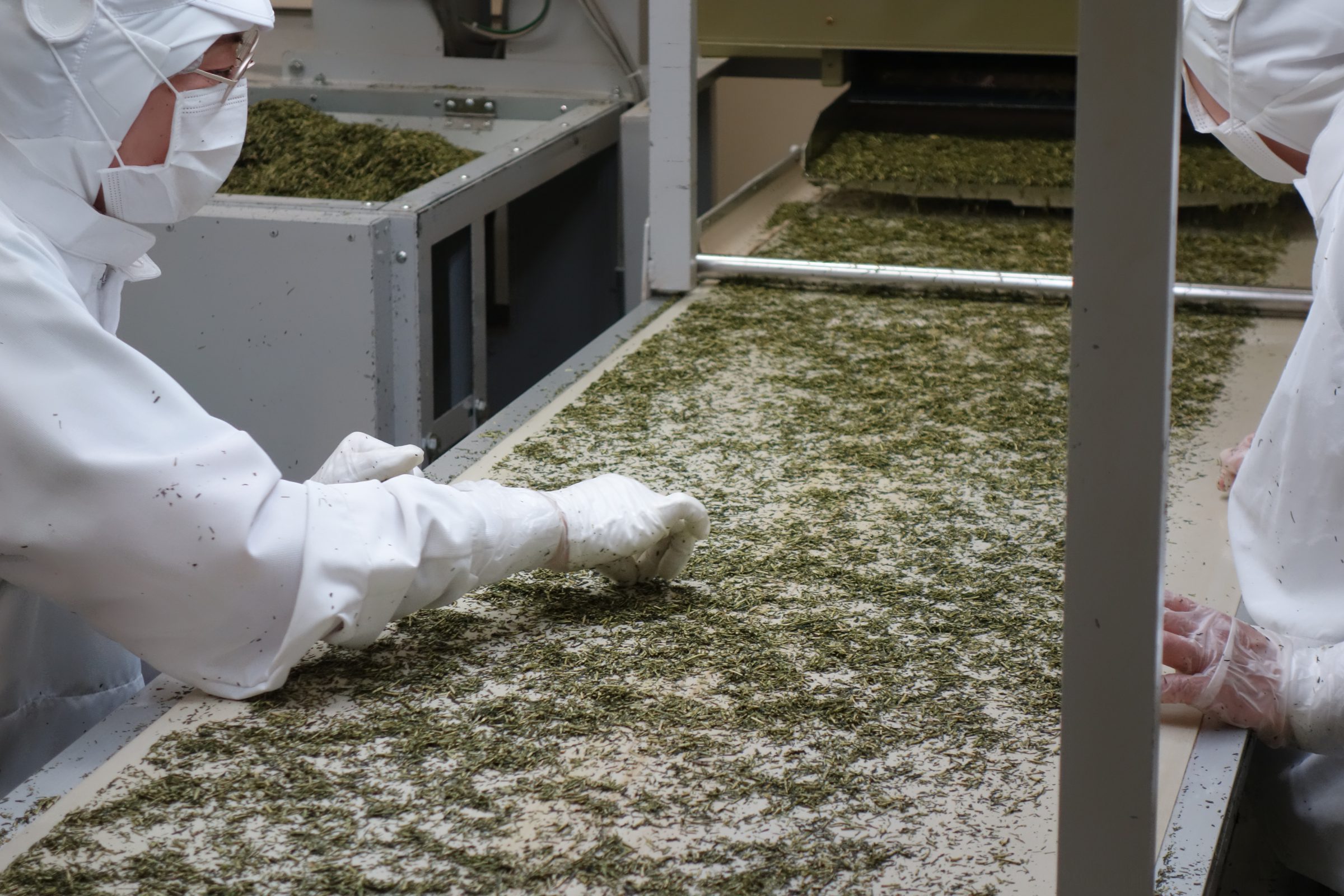
Teppei : In terms of the latest machinery, each tea farmer has their own equipment, but they all have one thing in common: the eyes, nose, and palate to make the most of their machines. A good tea has an excellent taste, aroma, and color. Because tea is a natural product, the quality changes from year to year. Only a skilled artisan can adjust the blend of tea leaves correctly, taking advantage of these natural changes. The precision of the machine is necessary to ensure the uniformity of the size of the tea leaves, but it is the artisan’s ability to distinguish teas and their philosophy behind tea production that makes the difference.
Teppei : I think you’d call it a relief, something like a realignment or a brief reset. I wasn’t aware I was drinking tea for that purpose, but now I think about it again, I realize that I drink tea when I’m trying to reset.
When I asked another employee about this, she said that making Matcha tea at home for a few minutes before work gives her time to think about herself. Someone else said that he makes Matcha in the office during work because it makes him feel stylish. During my lunch break, I brew a tea called Asatsuyu at 50 to 60 degrees Celsius to bring out the flavor. I find it calming after going through the day’s tasks with my employees. As you can see,
Ocha means different things to different people, but I think it’s good for the body and also gives you time to think.
